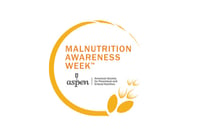This is the third of a 5-part series, Impact of Nutrition Care on Patient Outcomes. In this series, we will review original research that shows the impact nutrition care has on patient outcomes.
Surgical diagnoses added to CMS readmission penalties
The first post of this series discussed the readmission rates of Medicare patients and the impact readmissions have on healthcare costs. As part of the Hospital Readmissions Reductions Program (HRRP), CMS is reducing payments to hospitals with excess readmissions rates for certain diagnoses. Readmission is defined as an admission within 30 days of a discharge. In FY 2015, chronic obstructive pulmonary disease (COPD) and total hip or knee replacement surgeries are being added to the list of diagnoses. This is the first year that surgical procedures are included.
Malnutrition is a common reason for readmission after surgery
In anticipation of surgical procedures being measured, researchers at Emory Hospital examined factors associated with a hospital readmission within 30 days of discharge for general surgical inpatients. Since most of these surgeries are planned, the suggestion is there is an opportunity to intervene preoperatively to decrease the risk of readmission after surgery.
According to their study1, the most common reasons for readmission were:
- Gastrointestinal problems/complications (27.6%)
- Surgical infections (22.1%)
- Failure to thrive/malnutrition (10.4%)
It is estimated that one-third of patients admitted to hospitals are malnourished.2 While in the hospital, all patients are screened for nutrition risk. If a patient is found to be malnourished, nutrition intervention is provided while hospitalized. However, nutrition intervention needs to begin earlier for those undergoing planned surgery and needs to continue after discharge.
Proper nutrition improves patient outcomes
Providing home-delivered meals is a great way to ensure adequate nutrition prior to and following surgery, particularly for older adults. Many live on a fixed income and their food intake decreases with age. Per the Academy of Nutrition and Dietetics, the elderly have a lower intake of micronutrients and calories3.
Proper nutrition for those at risk improves patient outcomes following surgery or a hospitalization. Many health plans are adding home-delivered meals to their supplemental benefits.
2 Tappenden, KA, et al. J Parenter Enteral Nutr 2013;37:482-497.
3 Kamp, B, et al. J Am Diet Assoc. 2010;110:463-472.










